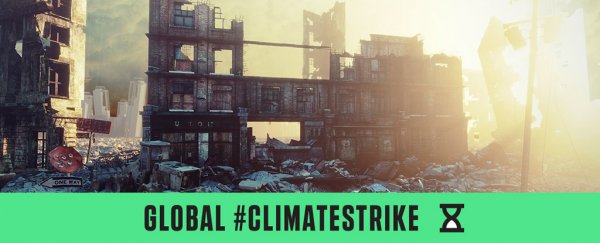The Syria I saw as a tourist back in 2004 was a very different place to what it is today.
I'd walked through the ruins of Palmyra before Islamic State reduced much of it to rubble. I drank Guinness in a suburb of Aleppo that today I'd be pressed to recognise.
And somewhere within an hour or so drive of the Iraqi border I was welcomed into the home of an instrument maker who – for all I know – might be among the millions of refugees now in flight from a nation torn apart by civil war.
It was just a few hours of conversation. But that afternoon has stuck with me as one of those 'in hindsight' moments.
I met him in a shop displaying new and repaired stringed instruments, one of which I'd pointed out as a fretless guitar called an oud. Not that I could play the thing, but I couldn't pass up an opportunity to show off my mediocre knowledge of Middle Eastern music to my companion.
Did you know traditionally they play it with an eagle's feather? So I'm told.
The resident craftsman, either amused or impressed, invited us inside with no small amount of pride for his business and, clearly, his young family, who occupied a small apartment above the shop.
It turned into an afternoon of sweet apple tea, pastries, and – an odd custom I came across more than once in the Middle East – repeated offers of fragrant, moisturising hand cream. Maybe I just had dry-looking skin…
We sat around the tiny kitchen table while his three children watched The Simpsons nearby, doing our best to find common ground using gestures and a clumsy hybrid of Arabic and English. My friend and I explained where we'd been and what we hoped to see. Our host talked about his trade and heritage.
Talk turned to the rural branch of his family who farmed wheat a little further up north. Times had been tough. They would be moving, selling, finding work in the city. I nodded sympathetically, not really comprehending the bigger picture.
Out of well-practiced politeness, we did our best to avoid digging too deeply into politics, moving onto other topics before we excused ourselves. The authoritative face of Bashar al-Assad was everywhere, promising ongoing strength and stability for the nation. As tourists, it wasn't our place to ask questions.
But on the horizon of that friendly banter we'd nonetheless glimpsed hints of what was to come. Of lost livelihoods. Of tribalism and power struggles in the face of changing resources. There were those who had, and those who had not. And our friend's family, I now imagine, wasn't among the privileged.
Two years later the start of a devastating five-year drought would begin to drive so many into hardship. Water would go to some, and less to others. Many would throw in the towel and migrate from their homes to burden towns and cities. The result is a tragedy we're still watching unfold to this day.
Since then the debate over whether global warming contributed a domino in this sequence has failed to provide a simple answer. In spite of its complexity, climate change's role in the conflict isn't something we can easily dismiss completely.
On the other hand, some fear that by focussing too much on the possible connections, we risk distraction from the political, social, and economic imbalances that frame social breakdown. Placing too much blame on climate change risks further complicating an already messy topic, others still argue.
"The case for international action on climate change is strong enough without relying on dubious evidence of its impacts on civil wars," international relations researcher Jan Selby and environmental scientist Mike Hulme claimed in The Guardian in 2015.
Perhaps. But even if looking at the Syrian civil war through a climate change lens risks unnecessary complications, it's only when we view climate change through a political lens that our future comes into focus.
Floods of refugees fleeing inhospitable lands; inequitable distribution of wealth and resources; broken trust in democracy. These are the very things that transform mere models of ocean currents and precipitation into a global humanitarian crisis.
We in the media are often guilty of driving home the reality of climate change through stock images and B-roll scenes of sweltering hot days and palm trees bending in hurricanes. It's local. And personal.
The very idea that our whole way of life might change under political turmoil is impossible for many of us to imagine, so we can only think of the crisis as an uncomfortable reality of heat waves and lost real estate.
Syria is the preview of our future we can't comprehend. Allegorically, even if not always explicitly… though it's a safe bet we'll see its like again.
A climate-ravaged world will push political and national boundaries to breaking point, forcing us to come up with new ways to deal with age old problems of politics on a world stage.
Whether the family of that lovely instrument maker are still there or not, I can't say. I don't remember their names, and fifteen years later only have a hazy recollection of the town I was in when I met them.
But when I struggle to put a human face to the IPCC's projections, it's that little instrument shop that comes to mind, and how in spite of being so far away, my footsteps still connect me to a small kitchen table in the middle of Syria.
This article is part of ScienceAlert's special climate edition, published in support of the global #ClimateStrike on 20 September 2019.

